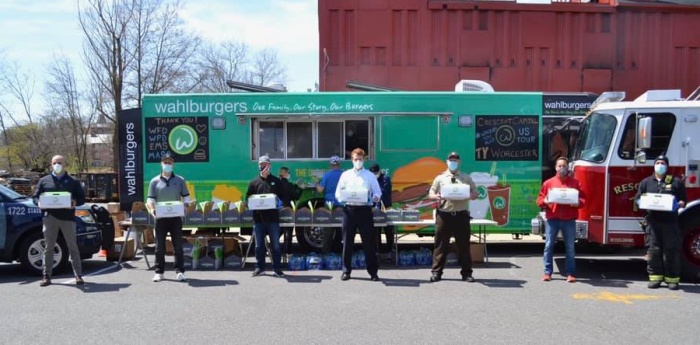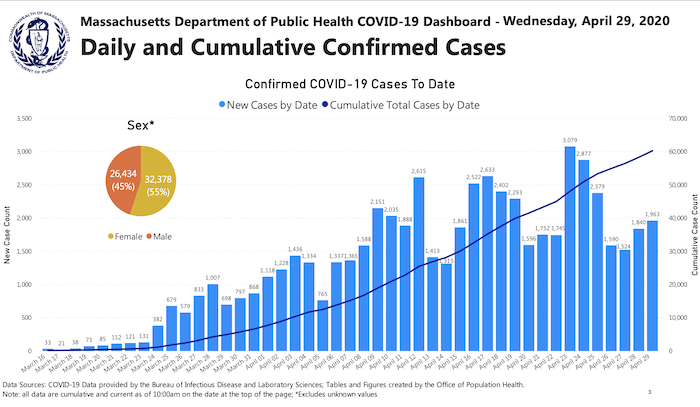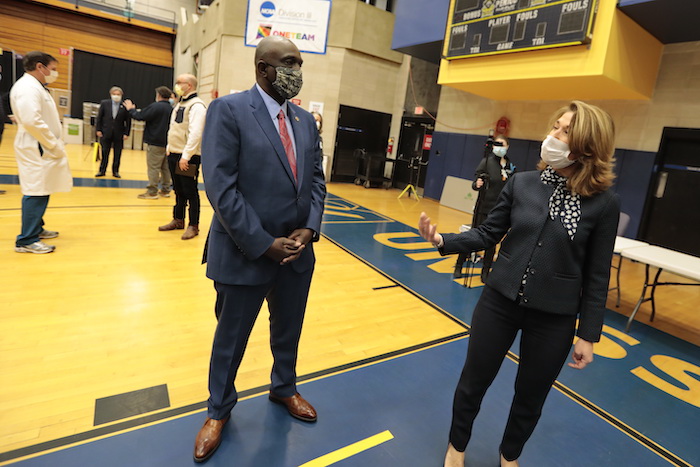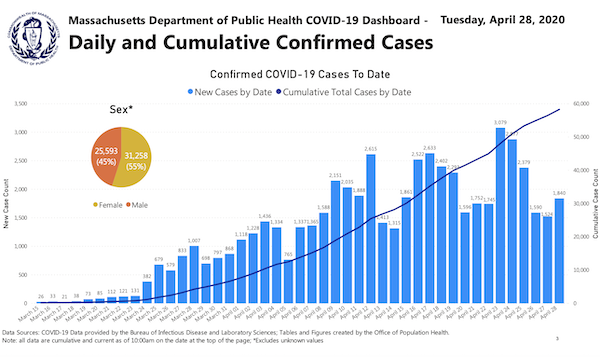By Katie Lannan
State House News Service
State stimulus checks would flow to certain immigrant taxpayers who are ineligible for similar payments through a federal program, under bills recently filed in the Massachusetts House and Senate.
Filed by Sen. Jamie Eldridge and Rep. Christine Barber, the bills would direct the state Department of Revenue to issue stimulus checks — $1,200 for an individual, plus more for dependent children and subject to reductions over set income thresholds — to people who paid Massachusetts taxes in 2019 using Individual Taxpayer Identification Numbers, and were ineligible for similar federal rebates under the Coronavirus Aid, Relief, and Economic Security relief package.
The Internal Revenue Service assigns Individual Taxpayer Identification Numbers (ITIN) to people who are required to pay taxes but are not eligible for Social Security numbers, including some who do not have lawful immigration status in the U.S.
Eldridge, an Acton Democrat, said towns he represents like Marlborough, Hudson and Maynard have large immigrant communities, and that he’d heard from undocumented constituents who have lost work during the COVID-19 pandemic but aren’t eligible for unemployment or public benefits and did not receive federal stimulus payments.
He called the legislation “really an issue of fairness.”
“There’s always discussion around undocumented constituents and are they paying taxes,” Eldridge told the News Service. “They all pay the taxes that consumers do, but in particular, these individuals, they would have had to file with an ITIN number, a number they can request from the IRS if they don’t have a Social Security number. Most do not have legal immigration status, but they’ve been paying taxes for years in hopes of immigration reform.”
The Massachusetts Budget and Policy Center pegged the cost of providing cash benefits to ITIN filers, in an amount equal to the federal stimulus they’d receive if eligible, at $58 million. An estimated 57,000 Massachusetts residents live in households with an ITIN filer, according to the center.
Barber, in a recent Somerville Media Center interview, said she filed the bill to help “that group of immigrants who have been working, who have paid into the system, but haven’t been able to get the assistance that they really need as well.”
She said California created a similar program to provide payments for immigrants ineligible for the federal stimulus.
“The way we can find them and connect with them, similar to the stimulus payment, is through their ITIN number, because they have paid taxes so we have a record of them in the tax system,” she said. “It would be just a subset of immigrants but it is people who are paying taxes and who are in our community.”
Eldridge said the legislation would also benefit “mixed status families,” where one spouse is a U.S. citizen but the other does not have a Social Security number.
“I talk regularly to food pantries in the district, and they’re definitely seeing an increased need, and some of that need is coming from immigrant families that have often had non-traditional jobs because of their legal status,” he said. “It’s a particular crisis within a lot of immigrant communities, but it’s kind of a silent crisis.”
Eldridge’s bill (S 2659) also includes language requiring the Executive Office of Administration and Finance to “distribute $10 million to organizations serving immigrants within 90 days.” His bill is now before the Joint Committee on Revenue for review.
Barber’s bill (HD 5036), which has 41 cosponsors, was referred to the House Rules Committee on April 27.
Since Gov. Charlie Baker declared a state of emergency on March 10 and social distancing became the norm, the House and Senate have been meeting in only informal sessions, where bills need the consent of all lawmakers present to advance. The House plans to begin holding remote formal sessions later this week if it is able to finalize rules permitting members to call in rather than being physically present in the chamber.
Immigrant advocates have been pressing legislators this session to take action on their priority bills, including proposals that would make driver’s licenses available to undocumented immigrants and that would restrict state and local cooperation with federal immigration enforcement. Despite the advocacy, Democratic legislative leaders have not brought the bills to the floor for a vote in either branch.
Eldridge is the Senate sponsor of the immigration enforcement bill, which supporters refer to as the Safe Communities Act. The lead House sponsors of that bill, Reps. Ruth Balser and Liz Miranda, were the first of 25 lawmakers to sign on to Eldridge’s stimulus bill.
In February, when legislative committees faced a deadline to report out most bills, the Public Safety and Homeland Security Committee gave itself until May 1 — this Friday — to make a decision on the immigration enforcement bill.
With pandemic-related matters now taking up most of the Legislature’s attention, some committees have been filing additional extension orders to give themselves more time on already-extended bills.
“Clearly sort of bigger policy issues on every front are not happening now, whether it’s climate change or reproductive rights or immigration policy,” Eldridge said. “I would like us to start taking up those bills as well, but obviously right now, with passing bills in informal session, sometimes it can limit what we can pass.”






